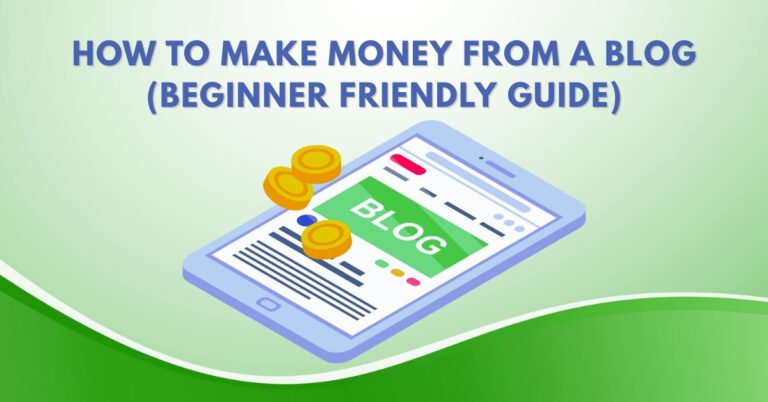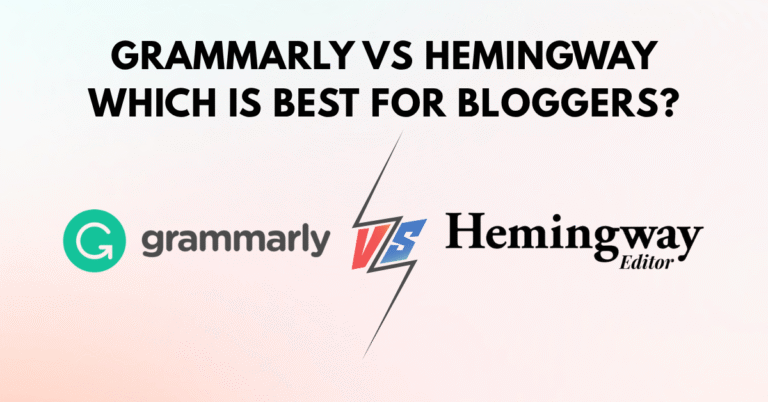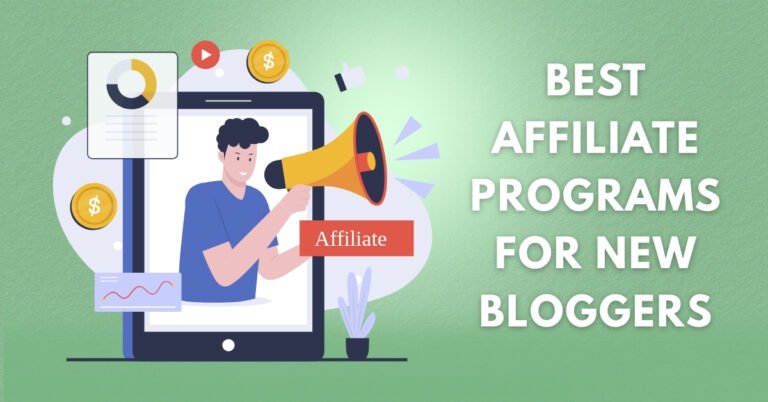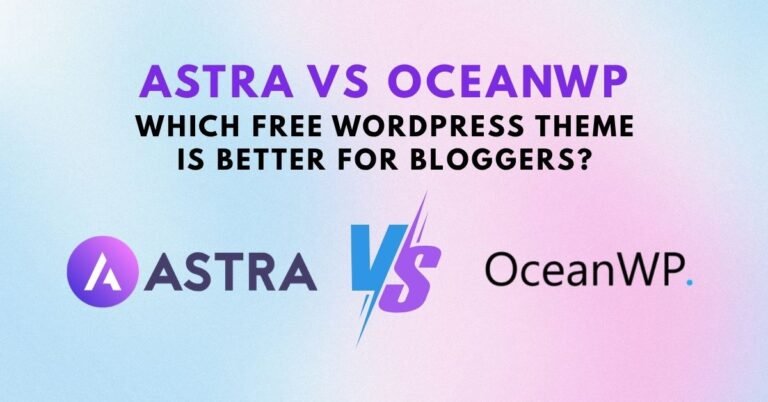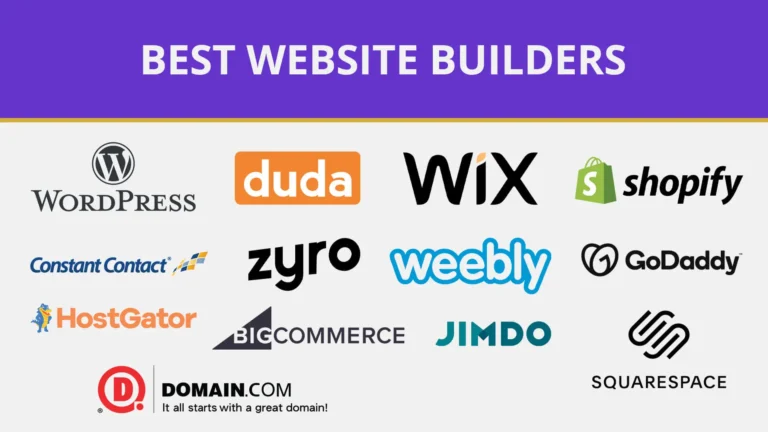Starting a blog is exciting—but turning visitors into loyal readers and customers? That’s where email marketing comes in. For beginner bloggers, choosing the right email marketing tool is crucial to building trust, growing an audience, and eventually monetizing your blog.
In this guide, we’ll compare the best email marketing tools for beginners in 2025 based on ease of use, pricing, features, and integration with WordPress. Whether you’re just launching your blog or want to start your first email list, you’ll find the perfect tool here.
Why Email Marketing Is Essential for Beginner Bloggers
If you’re still wondering why you need an email marketing tool, consider this:
- You own your email list (unlike social media followers)
- You can send targeted messages to your audience
- It increases return traffic, engagement, and conversions
- It’s essential for affiliate marketing, selling products, and launching courses
Email marketing is not optional—it’s a core part of blogging success.
What to Look for in an Email Marketing Tool (Especially as a Beginner)
Not all email platforms are beginner-friendly. Here’s what you should prioritize:
- Ease of use: Clean dashboard, drag-and-drop email builders
- Templates: Ready-made email and automation templates
- Automation: Basic workflows like welcome emails, tag-based sequences
- Integrations: Especially with WordPress, WooCommerce, and landing page builders
- Affordable pricing: Free plans or low-cost starter options
Top 7 Email Marketing Tools for Beginners
Let’s dive into the best tools beginner bloggers should consider in 2025.
1. Mailchimp – Best All-in-One Starter Tool
Mailchimp is one of the most popular email marketing tools, especially for beginners thanks to its free plan and user-friendly interface.
Key Features:
- Drag-and-drop editor
- Automation workflows
- 100+ email templates
- Basic A/B testing
Free Plan: Up to 500 contacts and 1,000 emails/month
Pros:
- Great for beginners
- Built-in analytics
- Mobile app available
Cons:
- Limited automation on the free plan
- Pricing increases quickly as your list grows

2. ConvertKit – Best for Bloggers & Creators
Built specifically for bloggers, YouTubers, and course creators, ConvertKit makes email marketing incredibly simple—especially if you want to build funnels or sell digital products.
Key Features:
- Visual automation builder
- Unlimited landing pages
- Tag-based subscriber management
- Sell products & subscriptions
Free Plan: Up to 1,000 subscribers (limited features)
Pros:
- Clean and intuitive UI
- Great support and tutorials
- Excellent for automations
Cons:
- More expensive than others
- Limited email templates
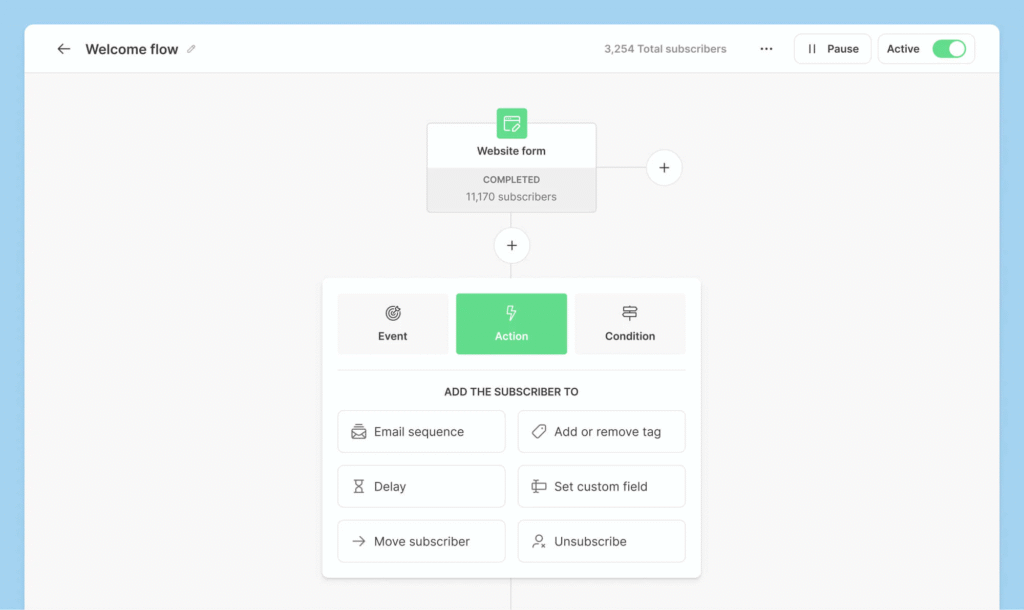
3. Brevo (formerly Sendinblue) – Best for All-in-One Marketing
Brevo is more than just email—it offers SMS marketing, CRM tools, and even a chat widget. If you’re looking for more than just email marketing, it’s a powerful platform to consider.
Key Features:
- Email + SMS campaigns
- Advanced automation workflows
- Transactional email features
- CRM and live chat
Free Plan: Unlimited contacts, up to 300 emails/day
Pros:
- All-in-one toolkit
- Strong automation engine
- GDPR-compliant and privacy-focused
Cons:
- Slightly steeper learning curve
- Daily sending limits on free plan
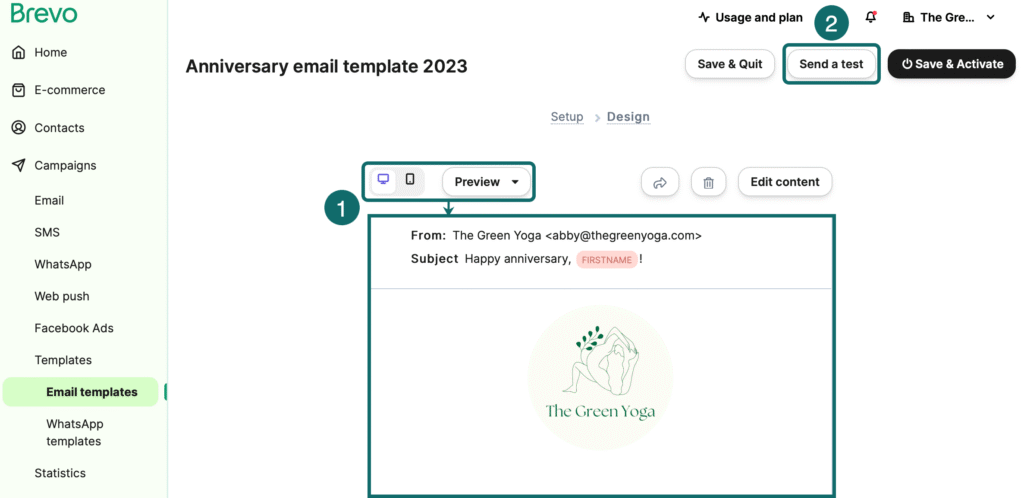
4. MailerLite – Best Simple & Clean Interface
MailerLite is loved for its minimalist design and affordability. If you just want to send good-looking emails and basic automation, this is a great pick.
Key Features:
- Clean drag-and-drop builder
- Email templates and landing pages
- Automation workflows
- Campaign analytics
Free Plan: Up to 1,000 subscribers and 12,000 emails/month
Pros:
- Super easy to use
- Excellent for simple newsletters
- Affordable paid plans
Cons:
- Free plan requires approval
- Limited integrations
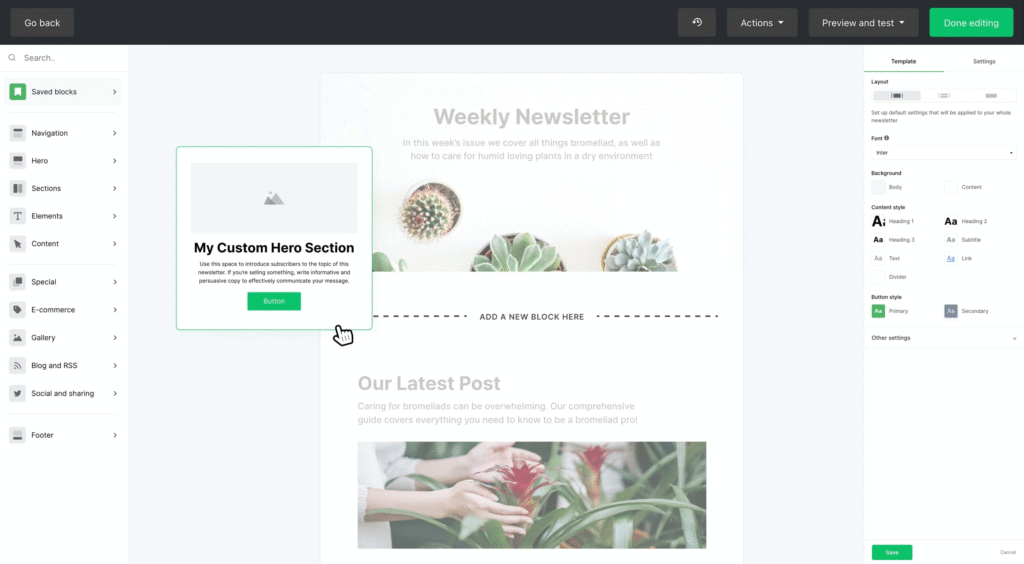
5. Moosend – Best Budget Option with Automation
Moosend might be less well-known but packs a punch. Its automation features are powerful for the price, making it a hidden gem for new bloggers.
Key Features:
- Drag-and-drop email builder
- Pre-built automations
- List segmentation and personalization
- AI-powered subject line suggestions
Free Plan: No longer available (starts at $9/month)
Pros:
- Great value for money
- Advanced automations at low cost
- Clean interface
Cons:
- Fewer third-party integrations
- Smaller template library
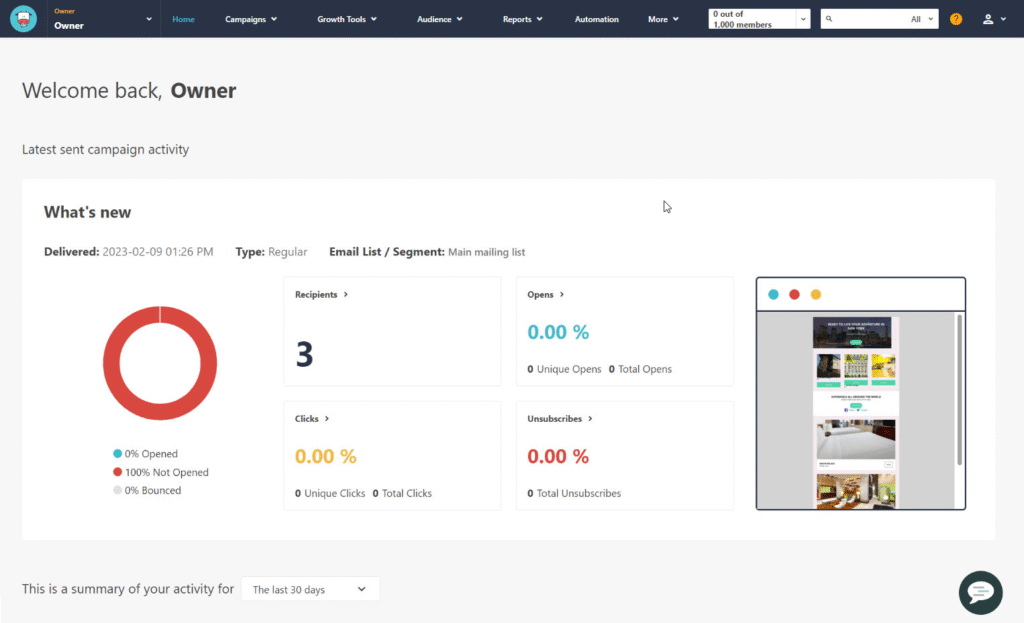
6. GetResponse – Best for Scaling Later
While GetResponse isn’t the easiest for beginners, it’s a great choice if you plan to scale your blog into a business with sales funnels, webinars, and eCommerce features.
Key Features:
- Conversion funnels
- Email automation builder
- Webinars and landing pages
- eCommerce integration
Free Plan: Up to 500 subscribers
Pros:
- Tons of features
- Funnel creation tool
- Great for marketers
Cons:
- Can feel overwhelming for beginners
- Learning curve
7. Flodesk – Best for Beautiful Emails
Flodesk is a newer player but gaining attention fast. If design is important to you, Flodesk lets you create stunning, on-brand emails without needing design skills.
Key Features:
- Beautiful templates
- Unlimited subscribers and emails
- Simple automations
- Intuitive interface
Pricing: $38/month flat fee (no free plan)
Pros:
- Gorgeous emails
- Easy to use
- Great for visual brands
Cons:
- No free plan
- Limited advanced features
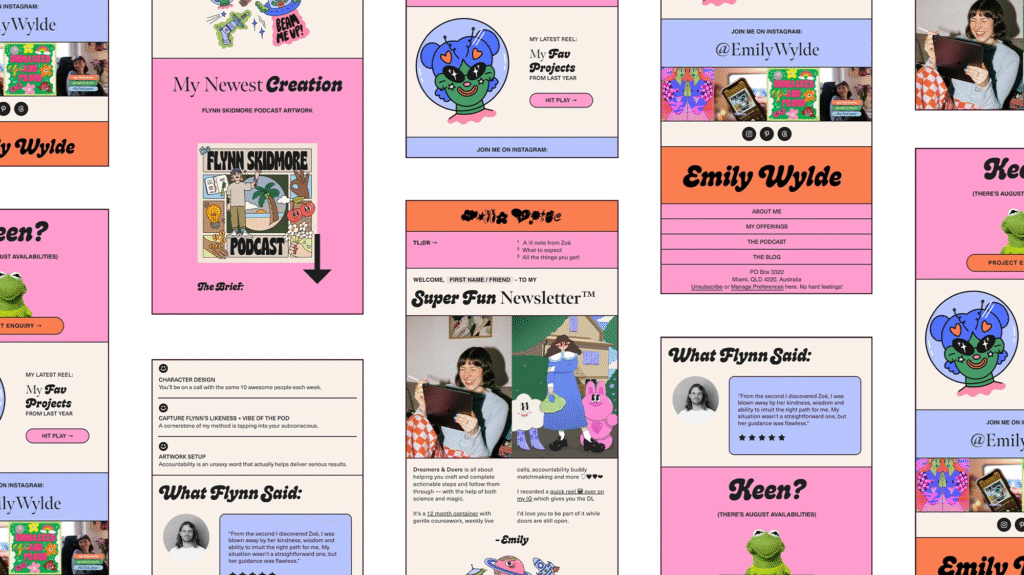
Comparison Table: Email Tools for Beginner Bloggers
| Tool | Free Plan | Best For | Ease of Use | Automation | Design |
|---|---|---|---|---|---|
| Mailchimp | ✅ | General beginners | ⭐⭐⭐⭐ | ⭐⭐ | ⭐⭐⭐ |
| ConvertKit | ✅ | Bloggers/Creators | ⭐⭐⭐⭐ | ⭐⭐⭐⭐ | ⭐⭐ |
| Brevo | ✅ | All-in-one marketing | ⭐⭐⭐ | ⭐⭐⭐⭐ | ⭐⭐ |
| MailerLite | ✅ | Simplicity | ⭐⭐⭐⭐ | ⭐⭐⭐ | ⭐⭐ |
| Moosend | ❌ | Budget automation | ⭐⭐⭐⭐ | ⭐⭐⭐⭐ | ⭐⭐ |
| GetResponse | ✅ | Growing businesses | ⭐⭐⭐ | ⭐⭐⭐⭐ | ⭐⭐ |
| Flodesk | ❌ | Design-focused bloggers | ⭐⭐⭐⭐ | ⭐⭐ | ⭐⭐⭐⭐ |
How to Choose the Right Email Tool as a Beginner
Ask yourself:
- How tech-savvy am I?
- Do I need automations now or later?
- What’s my budget?
- Do I want just emails or other features like landing pages or SMS?
Start simple—you can always switch tools later.
Tips for Growing Your Email List as a Beginner Blogger
- Add opt-in forms to your blog (sidebar, footer, exit popup)
- Offer a freebie like a checklist or mini eBook
- Place forms on high-traffic posts
- Use a lead magnet landing page
- Promote your email list on social media
Frequently Asked Questions (FAQs)
Yes! Email helps you build long-term relationships with your readers and drive repeat traffic to your blog.
Absolutely. Most tools offer import/export options, but it’s easier to choose the right one from the start.
Conclusion: Pick One and Get Started Today
No email tool is perfect—but the best one is the one you’ll actually use. If you’re stuck, try MailerLite or ConvertKit for ease and simplicity. Set up your first form, write a welcome email, and start building your list today. It’s one of the smartest steps you can take as a new blogger.

